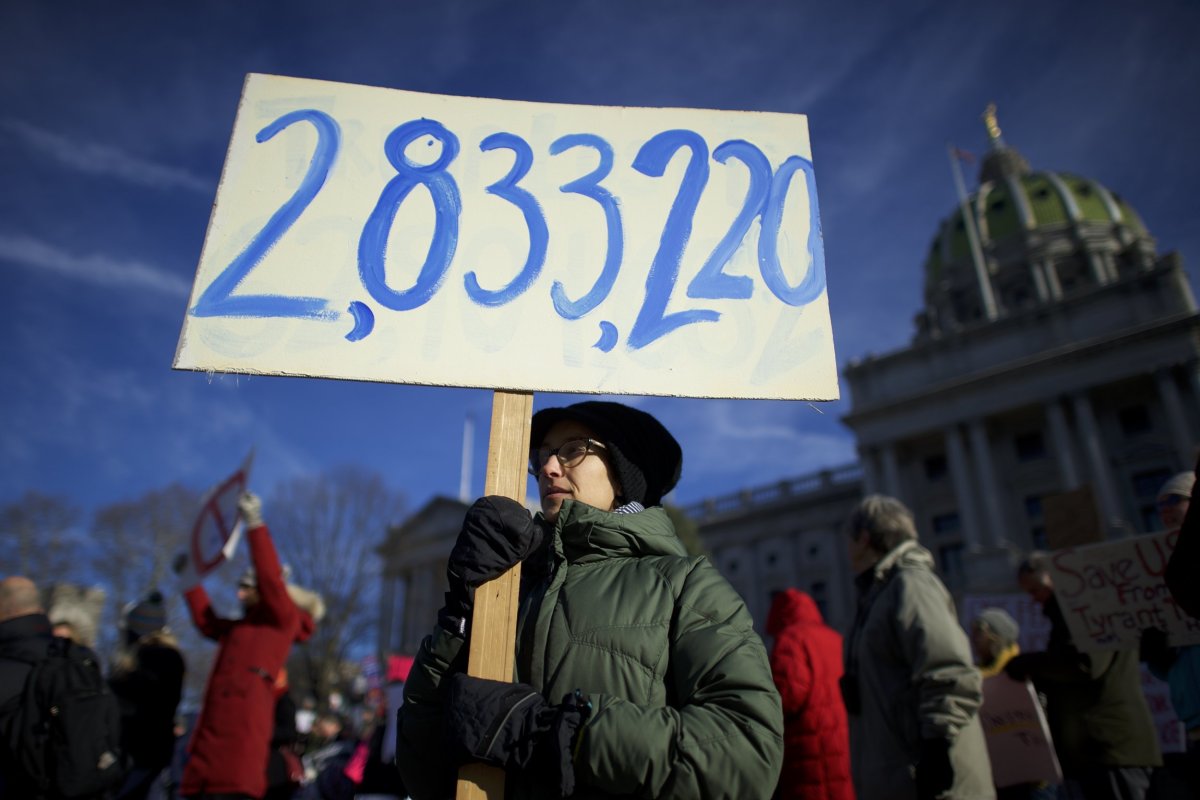The Republican Party is set to win a large majority of all future close presidential elections, even contests in which they lose the popular vote, according to a recent study.
GOP candidates for president can expect to be victorious in 65 percent of future presidential elections and University of Texas at Austin researchers analyzed why "inversions" — where the popular vote winner loses the overall election — has happened twice since 2000.
The study authors found that the Electoral College's winner-take-all approach favors Republicans and has pushed them to victories in 2000 and 2016.
The researchers concluded that inversions will occur more and more in 2020 and beyond unless a policy change completely dissolves, rather than reforms, the Electoral College.
The study released by the National Bureau of Economic Research last month found that one-third of presidential candidates who win the popular by less than 2 percentage points can still lose the Electoral College votes. In races decided by fewer than one percentage point, there's a 45 percent chance the popular vote winner still manages to lose the Electoral College.
Dean Spears, one of the UT-Austin researchers partnered in the study, told Huffington Post there have only been four inversions in presidential elections since 1836. Two such electoral inversions occurred in Republican George W. Bush's victory over Al Gore in 2000, and Republican Donald Trump's defeat of Hillary Clinton in 2016.
"What is fundamental to the Electoral College is that an inversion is very likely in a close election," study co-author Dean Spears told HuffPost. "Right now, in this moment in history, Republicans have the advantage. But that could change. Some of these potential policy changes wouldn't so much as reverse the probability of the inversions as shift it around."
The study co-authors pushed back on the notion that Trump's 2016 win was a "fluke," arguing that close elections should be expected to reflect an inverted result.
"I think a lot of people think that there was something special or improbable about the 2016 election," Spears said. "That with the politics of these times, 2016 was somehow a fluke. One of the important things that we learned is that that's not true. ... Not because it was unlikely, it was an inversion because an inversion is likely in a close election."
The study authors proposed that the complete elimination of the Electoral College is the only way to correct the imbalance, which favors 65 percent of future Republican presidential candidates.
"Feasible policy changes—including awarding each state's Electoral College ballots proportionally between parties rather than awarding all to the state winner—could substantially reduce inversion probabilities, though not in close elections," the study authors proposed.
A constitutional amendment would be required in order to abolish the Electoral College entirely, setting up the highly improbable situation in which three-fourths of a starkly divided U.S. Congress votes to approve. Additionally, three-quarters of U.S. states must approve the amendment.
Calls for abolishing the Electoral College have increased from Democrats since 2000. But Trump himself called the system a "disaster" in November 2012 after Barack Obama's large victory in both categories over Mitt Romney. Trump went on to call for a "revolution" and to "fight like hell" in order to abolish the Electoral College. However, Trump completely changed his tune after winning in 2016 via the Electoral College votes, labeling the system "genius."
Earlier this year, more than a dozen states created a compact called the National Popular Vote movement to elect a president based on the national popular vote rather than the current state-by-state, winner-take-all Electoral College system.

Uncommon Knowledge
Newsweek is committed to challenging conventional wisdom and finding connections in the search for common ground.
Newsweek is committed to challenging conventional wisdom and finding connections in the search for common ground.
About the writer
Benjamin Fearnow is a reporter based out of Newsweek's New York City offices. He was previously at CBS and Mediaite ... Read more
To read how Newsweek uses AI as a newsroom tool, Click here.








